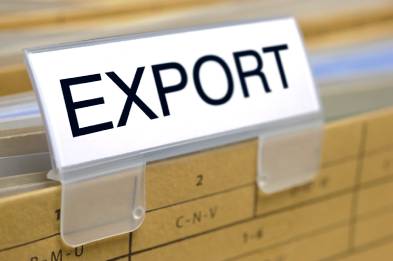
Today we will delve into the intricate world of customs procedures governing the movement of goods into and out of the United Kingdom. As a crucial aspect of international trade, understanding customs clearance is paramount for businesses and individuals involved in importing or exporting goods. This guide offers insights into the complex regulatory landscape, providing clarity on documentation requirements, tariff classifications, and compliance measures. Whether you’re a seasoned importer/exporter or a newcomer to global trade, this resource serves as a comprehensive roadmap for successfully navigating customs clearance in the UK.
Understanding the intricacies of the customs clearance process in the UK
Understanding the intricacies of the customs clearance process in the UK is essential for smooth international trade operations. It involves adhering to complex regulations, submitting accurate documentation, and navigating tariff classifications. Customs clearance ensures compliance with import/export laws, facilitates the movement of goods, and determines duties and taxes. Factors such as product classification, valuation, and origin verification contribute to the process’s intricacy. With continuous changes in trade policies and Brexit implications, staying informed about customs procedures is crucial for businesses and individuals engaged in cross-border trade. A comprehensive understanding of these aspects is vital for efficient and compliant import/export activities in the UK.
Factors affecting the time to have customs clearance in the UK
Customs clearance is a critical step in international trade, ensuring the legal movement of goods across borders. In the UK, several factors influence the time it takes for goods to clear customs, impacting supply chain efficiency and trade competitiveness.

Documentation Accuracy: Accurate and complete documentation is paramount for swift customs clearance which usually include Bill of lading, packing list, commercial invoice, certificate of origin, health & safety certificates and other licences. Errors or missing information can lead to delays as customs officials verify and rectify discrepancies. Ensuring all required documents are in order can expedite the process.
Product Classification: Each imported or exported product is assigned a specific tariff code based on its characteristics and intended use. Correctly classifying goods according to the Harmonized System (HS) ensures accurate duty assessment but requires careful attention to detail. Incorrect classification can lead to customs delays, wrong import duty tax imposed and potential fines.
Customs Declarations: Timely submission of customs declarations is crucial for efficient clearance. Electronic filing systems, such as the Customs Handling of Import and Export Freight (CHIEF) or the Customs Declaration Service (CDS), facilitate faster processing. Delays may occur if declarations are incomplete, inaccurate, or submitted late.
Customs Inspection: Random inspections or targeted examinations by customs authorities may prolong clearance times. Factors such as security concerns, the nature of goods, and historical compliance records influence inspection frequency. Compliance with regulatory standards and transparency in documentation can minimise the likelihood of inspections.
Tariffs and Duties: The determination of applicable tariffs, duties, and taxes impact clearance time. Complex tariff structures, preferential trade agreements, and changes in trade policy introduce variability in duty calculations. Utilising duty relief programs or preferential trade schemes can mitigate costs and expedite clearance for eligible goods.

Regulatory Compliance: Compliance with import/export regulations, including licensing requirements, sanitary and phytosanitary measures, and product standards, is essential for smooth customs clearance. Non-compliance may trigger additional scrutiny and delays as authorities ensure adherence to legal obligations.
Brexit Implications: The UK’s departure from the European Union has introduced new customs procedures and border controls, affecting clearance times. Increased administrative burdens, customs declarations, and border checks have led to longer processing times, particularly for goods moving between the UK and EU member states.
Navigating the customs clearance process in the UK requires proactive planning, meticulous attention to detail, and compliance with regulatory requirements. By addressing the factors influencing clearance time, businesses can streamline operations, minimise delays, and enhance their competitiveness in the global marketplace. Stay informed, stay compliant, and pave the way for efficient trade across UK borders.
What is the time required to have customs clearance in the UK according to product types?
The time required for customs clearance in the UK varies depending on the product types involved. Generally, clearance times can range from a few hours to several days.
For standard consumer goods with straightforward classifications and low regulatory requirements, customs clearance may be relatively quick, often taking a few hours to complete. Examples include everyday items like clothing, electronics, and household goods.
However, for products with complex classifications, such as machinery, chemicals, or pharmaceuticals, clearance times can be longer. These products may require thorough inspections, compliance checks, and additional documentation, resulting in clearance times of several days or more.
Perishable goods, including fresh produce, seafood, and pharmaceuticals, also have specific clearance requirements due to their time-sensitive nature. Delays in clearance can impact product quality and shelf life, making timely processing critical.
Furthermore, goods subject to special regulations or trade agreements, such as controlled substances, hazardous materials, or goods eligible for preferential tariffs under free trade agreements, may experience longer clearance times due to the need for additional approvals and verifications.
Ultimately, the time required for customs clearance depends on various factors, including product complexity, regulatory requirements, documentation accuracy, and customs workload. Efficient planning, compliance with regulations, and proactive communication with customs authorities can help expedite the clearance process for different product types. In light of these factors, it is important to engage a reputable customs clearing agent like 121 Air Sea Cargo, who will manage your cargo and handle everything efficiently.
How to minimise clearance delays
To minimise clearance delays in the UK, ensure accurate and complete documentation, including commercial invoices and certificates of origin. Classify products correctly according to the Harmonized System (HS) codes, and submit customs declarations promptly through electronic filing systems. Maintain transparency in your transactions and comply with import/export regulations and standards. Utilise duty relief programs and preferential trade agreements where applicable. Proactively communicate with customs authorities, address any issues promptly, and stay informed about changes in trade policies and procedures. Collaborate with reliable logistics partners like 121 Air Sea Cargo and utilise technology and their expertise for efficient supply chain management.
What do we mean by HS Codes?
HS Codes, short for Harmonized Commodity Description and Coding System, are an internationally standardised classification system used to categorise products traded in global commerce. Each product is assigned a unique HS code based on its characteristics, composition, and intended use. These codes consist of a series of digits, with each digit representing a specific attribute of the product, such as its material, function, or origin. HS Codes facilitate the uniform classification of goods across borders, enabling customs authorities to apply consistent tariff rates, track trade statistics, and enforce regulatory requirements. They play a crucial role in simplifying customs procedures and ensuring clarity in international trade. If you want to know more about HS codes and understand the perfect classifications for your products, visit trade-tariff.service.gov.uk.

Save Costs and Avoid Demurrage with Clearance Free Days
Clearance free days, also known as free time, are a period during which shipping lines allow containers to be stored at the terminal without incurring additional charges. This period typically includes a certain number of days when no fees for demurrage or container detention are applied, enabling consignees to clear their goods through customs without immediate pressure. Different shipping lines offer varying numbers of clearance free days, and it’s important to check specific policies to understand the exact duration. For example, some lines may provide a standard of four clearance free days, while others might offer seven or even ten days before detention charges begin. Container detention charges start accruing once the clearance free days expire, incentivizing timely pick-up and return of containers to avoid extra costs.
Demurrage charges are fees levied by shipping lines when import containers are not cleared and picked up from the port within the allotted free days. These charges compensate the shipping line for the extended use of their containers and space at the terminal. Demurrage fees can vary widely depending on the shipping line and the port, often escalating daily the longer the container remains uncollected. To avoid incurring high demurrage costs, one effective strategy is to purchase additional free days at the time of booking. This option, which we recommend to our customers, is usually more cost-effective than paying daily demurrage charges. By planning ahead and securing extra free days, importers can mitigate the risk of delays in customs clearance and transportation logistics, ensuring a smoother and more economical shipping process.
121 Air Sea Cargo specialises in delivering efficient and timely customs clearance services in the UK. With over 10 years of expert knowledge of UK customs regulations and procedures, we ensure smooth processing of import and export shipments. Our dedicated team navigates complex clearance requirements swiftly, minimising delays and ensuring compliance. Utilising advanced technology and proactive communication, we streamline the clearance process for various product types and industries. Whether it is standard consumer goods or specialised commodities, our commitment to excellence ensures that your shipments clear customs seamlessly, allowing you to focus on your business operations with confidence.
Contact us to discuss Customs Clearance in the UK at our offices in the UK and Dubai!
121 Air Sea Cargo Ltd
UK Address: 18-24 Brighton Road Croydon, Surrey, CR2 6AA
Phone: +44 (0) 20 8313 1777/+44 7931 471653
UAE Address: Unit 25, Dubai Industrial City, Dubai, United Arab Emirates
Phone: +971 (0) 50 425 1255/+971 (0) 56 938 4480
Email: info@121airseacargo.com

